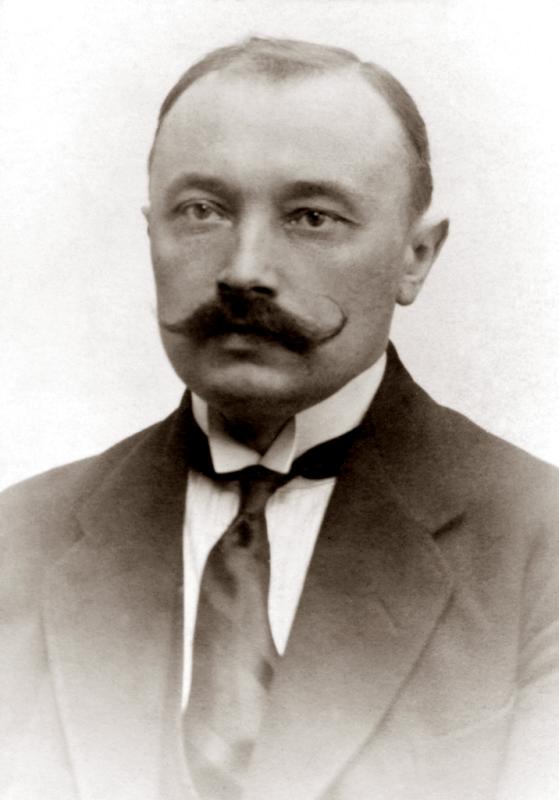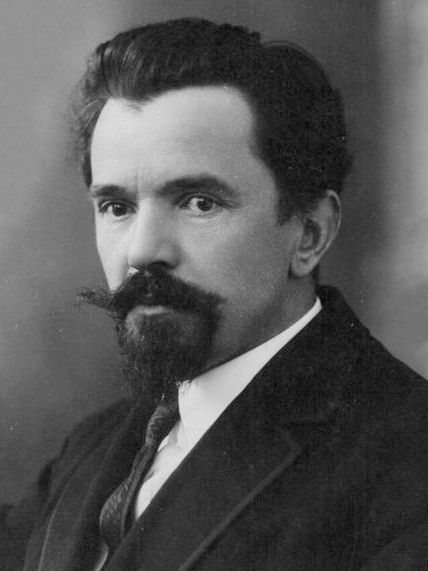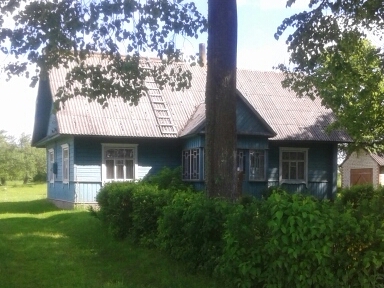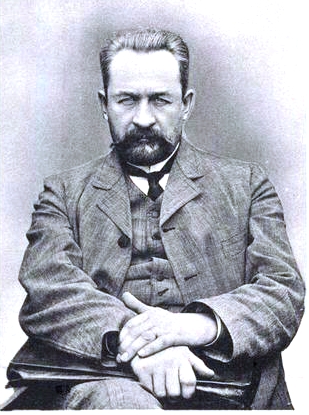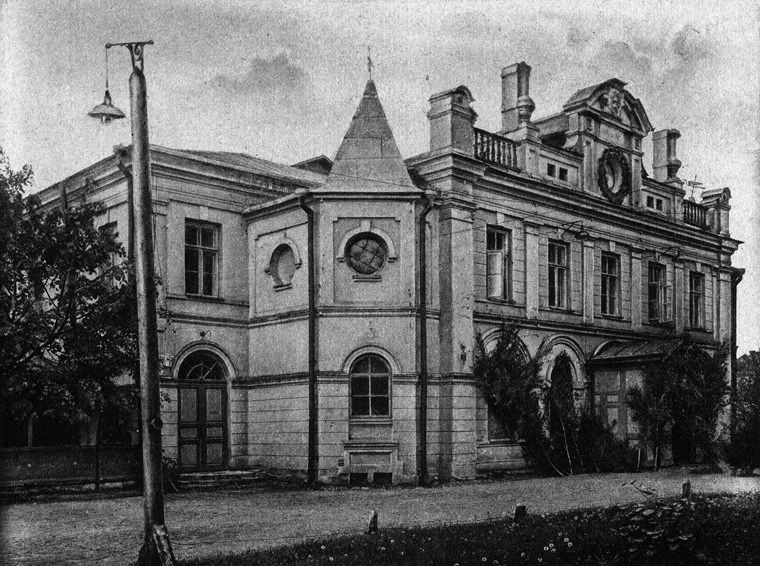|
Petrograd Seimas
Petrograd Seimas ( lt, Rusijos lietuvių seimas Petrograde or ) was a conference of Lithuanian activists in Petrograd, Russian Republic, held on to discuss the political future of Lithuania. Citing the right of self-determination, the delegates discussed whether Lithuania should seek autonomy or full independence. While it failed to unite Lithuanian activists, it helped to crystallize ideas on Lithuania's independence. The February Revolution brought political freedoms and Lithuanians hurried to organize their political parties. There was a need to organize an authoritative political body that could represent all Lithuanians and work towards obtaining autonomy or full independence from Russia. Representatives of five Lithuanian parties established the Council of the Lithuanian Nation () in February 1917. To boost its authority and recognition, the council called the Petrograd Seimas attended by 334 deputies. There were passionate disagreements between the political right (Party of N ... [...More Info...] [...Related Items...] OR: [Wikipedia] [Google] [Baidu] |
Petrograd
Saint Petersburg ( rus, links=no, Санкт-Петербург, a=Ru-Sankt Peterburg Leningrad Petrograd Piter.ogg, r=Sankt-Peterburg, p=ˈsankt pʲɪtʲɪrˈburk), formerly known as Petrograd (1914–1924) and later Leningrad (1924–1991), is the second-largest city in Russia. It is situated on the Neva River, at the head of the Gulf of Finland on the Baltic Sea, with a population of roughly 5.4 million residents. Saint Petersburg is the fourth-most populous city in Europe after Istanbul, Moscow and London, the most populous city on the Baltic Sea, and the world's northernmost city of more than 1 million residents. As Russia's Imperial capital, and a historically strategic port, it is governed as a federal city. The city was founded by Tsar Peter the Great on 27 May 1703 on the site of a captured Swedish fortress, and was named after apostle Saint Peter. In Russia, Saint Petersburg is historically and culturally associated with th ... [...More Info...] [...Related Items...] OR: [Wikipedia] [Google] [Baidu] |
Antanas Tumėnas
Antanas Tumėnas (13 May 1880 in Kurkliečiai, near Rokiškis – 8 February 1946 in Bachmanning, Austria) was a Lithuanian politician, teacher, professor of law, judge, Prime Minister of Lithuania in the 10th cabinet, Chairman of the Supreme Committee for the Liberation of Lithuania. He was a member of the Lithuanian Christian Democratic Party. Tumėnas was elected to the Constituent Assembly of Lithuania and was appointed as chairman of the Constitutional Commission of Lithuania (1922). Later he was a member of the 1st Seimas. He was the speaker of Seimas in 1923. He participated in creating the law system of the new republic. He was Minister of Justice A justice ministry, ministry of justice, or department of justice is a ministry or other government agency in charge of the administration of justice. The ministry or department is often headed by a minister of justice (minister for justice in a v ... in the 9th, 10th and 11th Cabinets of Lithuania. References External l ... [...More Info...] [...Related Items...] OR: [Wikipedia] [Google] [Baidu] |
Paris Peace Conference, 1919
Paris () is the Capital city, capital and List of communes in France with over 20,000 inhabitants, most populous city of France, with an estimated population of 2,165,423 residents in 2019 in an area of more than 105 km² (41 sq mi), making it the List of cities proper by population density, 30th most densely populated city in the world in 2020. Since the 17th century, Paris has been one of the world's major centres of finance, diplomacy, commerce, Fashion capital, fashion, gastronomy, and science. For its leading role in the arts and sciences, as well as its very early system of street lighting, in the 19th century it became known as "the City of Light". Like London, prior to the Second World War, it was also sometimes called Caput Mundi#Paris, the capital of the world. The City of Paris is the centre of the Île-de-France Regions of France, region, or Paris Region, with an estimated population of 12,262,544 in 2019, or about 19% of the population of France, making the ... [...More Info...] [...Related Items...] OR: [Wikipedia] [Google] [Baidu] |
Petras Leonas
Petras Leonas (1864–1938) was a Lithuanian attorney and politician, the first Minister of Justice of the newly independent Lithuania in 1918. After graduating from Moscow University in 1889, Leonas held a government job at various courts in Suwałki and Uzbekistan. He was fired after supporting the Constitutional Democratic Party (Kadets) during the Russian Revolution of 19to Lithuania and took up private law practice, which he had for 32 years. In 1907, he was elected to the second short-lived State Duma of the Russian Empire. During World War I, Leonas retreated to Russia and was deputy chairman of the Lithuanian Society for the Relief of War Sufferers. In March 1917, he was one of the founders of the Democratic National Freedom League. He returned to newly independent Lithuania in 1918 and began working on drafting some of the fundamental legislation. He became the first Minister of Justice in November 1918 and the fourth Minister of Internal Affairs in April 1919. He wo ... [...More Info...] [...Related Items...] OR: [Wikipedia] [Google] [Baidu] |
Mykolas Sleževičius
Mykolas Sleževičius (21 February 1882 – 11 November 1939) was a Lithuanian lawyer, political and cultural figure, and journalist. One of the most influential figures in inter-war Lithuania, he served as the prime minister of Lithuania on three occasions. Taking the helm of the government at a difficult time in 1918 and again in 1919, Sleževičius has been credited with preparing Lithuania for the fights to come and for laying the foundations of the fledgling state. Sleževičius was elected to the Lithuanian parliament, initially the Constituent Assembly, later the Seimas, on four occasions. In 1926, as a representative of the Lithuanian Popular Peasants' Union, Sleževičius became the prime minister for a third time. His government introduced important changes aimed at normalizing the situation in Lithuania, but the reforms faced resistance from the Catholic clergy, military officers and the parliamentary opposition. The resistance culminated in a military coup d'état in ... [...More Info...] [...Related Items...] OR: [Wikipedia] [Google] [Baidu] |
Mykolas Krupavičius
Mykolas Krupavičius (1 October 1885, Balbieriškis, Lithuania – 4 December 1970, Chicago, U.S.) was a Lithuanian priest and politician. He is best known for his involvement with the land reform in the interwar Lithuania. In 1900 Krupavičius enrolled into the Veiveriai Teachers' Seminary. He showed interest in politics from early days: during the Russian Revolution of 1905 he was arrested twice. After graduation in 1905, he worked as a teacher in the Łomża Governorate and in Papilė. In 1908 Krupavičius began his theological studies at the Sejny Priest Seminary and continued them at the Saint Petersburg Roman Catholic Theological Academy. He was ordained into the priesthood in June 1914. After graduation in 1917, he worked as a chaplain at a Lithuanian school in Voronezh. At the same time he got involved with the Lithuanian Christian Democratic Party and was sentenced to death by the Bolshevik revolutionary court. Krupavičius escaped the arrest and returned to Lithua ... [...More Info...] [...Related Items...] OR: [Wikipedia] [Google] [Baidu] |
Martynas Yčas (politician)
Martynas Yčas (December 10, 1917 – April 22, 2014) was a Lithuanian-born microbiologist. He co-authored the book '' Mr. Tompkins: Inside Himself'' with physicist George Gamow. In 1941 Yčas went to the University of Wisconsin Madison where as a U.S. Army recruit he assisted at the Russian language school. After the war he studied zoology there, gaining the Bachelor of Arts in 1948. He then studied microbiology at California Institute of Technology, graduating in 1950. Upstate Medical University in Syracuse, New York hired him in 1956 and he taught microbiology there until 1988. He was a founding member of the RNA Tie Club, a discussion society of scientists who attempted to decipher the genetic code and with Gamow and others published early statistical analyses of proteins and DNA which disproved some early models of the genetic code. The review for ''The Biological Code'' said the book was "the most complete and best-indexed treatment of the biological code available."J.L. Epl ... [...More Info...] [...Related Items...] OR: [Wikipedia] [Google] [Baidu] |
Augustinas Voldemaras
Augustinas Voldemaras (16 April 1883 – 16 May 1942) was a Lithuanian nationalist political figure. He briefly served as the country's first prime minister in 1918 and continued serving as the minister of foreign affairs until 1920, representing the fledgling Lithuanian state at the Versailles Peace Conference and the League of Nations. After some time in academia, Voldemaras returned to politics in 1926, when he was elected to the Third Seimas. Dissatisfied with the left-wing government of President Kazys Grinius, Voldemaras and fellow nationalist Antanas Smetona supported the military coup d'état in December 1926 and he was appointed as the prime minister for a second time. A brilliant orator, Voldemaras represented the radical wing of the Lithuanian Nationalist Union that was increasingly critical of the more moderate policies of President Smetona. Smetona had Voldemaras removed from office in September 1929 and exiled to Zarasai. Voldemaras was arrested in 1934 after the ... [...More Info...] [...Related Items...] OR: [Wikipedia] [Google] [Baidu] |
Fyodor Kokoshkin (politician)
Fyodor Fyodorovich Kokoshkin (russian: Фёдор Фёдорович Коко́шкин, — ) was a Russian lawyer and politician, author of seminal works on jurisprudence, the First Russian State Duma deputy, and a founding member of the Russian Constitutional Democratic Party and the Controller general of the Russian Provisional Government. The playwright Fyodor Kokoshkin was his grandfather.Фёдор Фёдорович Кокошкин The biography at www.hrono.ru Biography Born in , , |
Petrograd Soviet
The Petrograd Soviet of Workers' and Soldiers' Deputies (russian: Петроградский совет рабочих и солдатских депутатов, ''Petrogradskiy soviet rabochikh i soldatskikh deputatov'') was a city council of Petrograd (Saint Petersburg), the capital of Russia at the time. For brevity, it is usually called the Petrograd Soviet (russian: Петроградский совет, ''Petrogradskiy soviet''). The Soviet was established in March 1917 after the February Revolution as a representative body of the city's workers and soldiers, while the city already had its well-established city council, the (Central Duma). During the revolutionary days, the council tried to extend its jurisdiction nationwide as a rival power center to the Provisional Government, creating what in Soviet historiography is known as the '' Dvoyevlastiye'' (Dual power). Its committees were key components during the Russian Revolution and some of them led the armed revolt of the ... [...More Info...] [...Related Items...] OR: [Wikipedia] [Google] [Baidu] |
Georgy Lvov
Prince Georgy Yevgenyevich Lvov (7/8 March 1925) was a Russian aristocrat and statesman who served as the first prime minister of republican Russia from 15 March to 20 July 1917. During this time he served as Russia's ''de facto'' head of state. A member of the Lvov princely family, Lvov gained national fame for organising relief work in the Russian Far East during the Russo-Japanese War. In 1905, he joined the Constitutional Democratic Party. Early life and education Georgy Lvov was born on 2 November 1861 (21 October, Old Style, Julian Calendar) in Dresden, Saxony, then part of the German Confederation. The Lvov princely family were among the oldest Russian noble families, tracing their roots from the sovereign Rurik dynasty princes of Yaroslavl. His father was a reform-minded liberal who spent almost all his income on his children's education; Lvov and his five brothers were sent off to the most prestigious Moscow schools. Throughout his youth, Georgy lived with his fami ... [...More Info...] [...Related Items...] OR: [Wikipedia] [Google] [Baidu] |
Constituent Assembly Of Lithuania
The Constituent Assembly of Lithuania ( lt, Steigiamasis Seimas) was the first parliament of the independent state of Lithuania to be elected in a direct, democratic, general, secret election. The Assembly assumed its duties on 15 May 1920 and was disbanded in October 1922. Legal grounds Following the last Partition of the Polish-Lithuanian Commonwealth in 1795, Lithuania was annexed by and became part of the Russian Empire. On 21 September 1917, Vilnius played host to the Lithuanian Conference which resolved that, to lay groundwork for the independent Lithuania and regulate its relations with the neighbours, a Constituent Assembly, elected under the principles of democracy by all of its residents, had to be convened in Vilnius. The resolutions of the Conference were to be implemented by an executive body: the Lithuanian Council of 20 members (to become the Council of the State of Lithuania as of 11 July 1918). It was this Council that adopted the Act of Independence on 16 ... [...More Info...] [...Related Items...] OR: [Wikipedia] [Google] [Baidu] |



